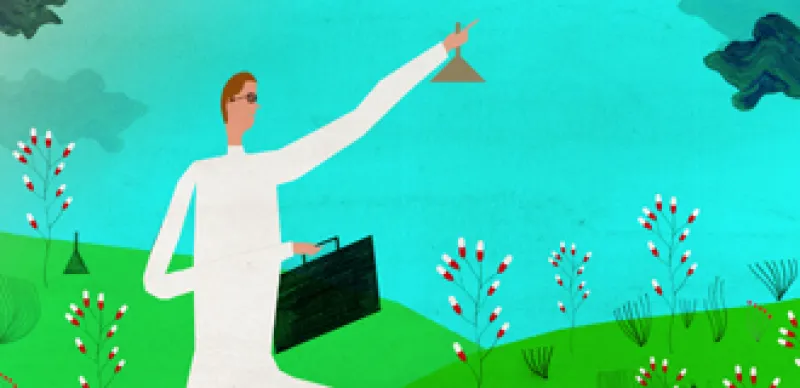Thanks to the growing pressure to help contain health care costs by using generic drugs instead of costlier branded ones, the U.S. market is a slow-growth zone for most major drugmakers. So it’s no surprise that U.S. and non-U.S. pharmaceuticals companies are on the prowl to expand their portfolios in the developing world, where growth is 3 times higher than in the industrialized West. Abbott Laboratories is the latest to splurge on an emerging-markets acquisition, buying the branded generics business of India’s Piramal Healthcare for $3.7 billion in September.
The developing world will account for about 70 percent of the pharmaceuticals industry’s revenue growth within five years, from 35 percent today, according to Los Angeles–based Wedbush Securities. “If you go to countries like India and China, where people may have never had health care, let alone pharmaceuticals, the growth in those areas will be explosive,” says Dimitri Drone, New York–based leader of U.S. transaction services for pharmaceuticals and life sciences at business consulting firm PricewaterhouseCoopers.
By acquiring Piramal’s branded generics business, North Chicago–based Abbott vaulted into first place in the $8 billion Indian pharmaceuticals market, with a 7 percent share. William Chase, vice president for licensing and acquisitions at Abbott, says Piramal’s 2011 sales should be about $500 million. Abbott projects its Indian pharma business will hit $2.5 billion a year in the next decade.
“We looked at all the major targets in India to try to figure out which would pair best with Abbott,” Chase says. “Piramal kept coming out on top for a number of different reasons, including management strength, business practices similar to our company’s, position in the market and the fact that it was a very well-run business that had significant growth.”
Phillip Nalbone, senior medical technology analyst at Wedbush, says Abbott paid a “big fat premium”: about 8.7 times the Piramal division’s $426 million in sales for fiscal 2010. Abbott agreed to give Piramal $2.12 billion up front, followed by four annual payments of $400 million, all from cash on the balance sheet. “There was a very competitive bidding process because people really do want access to these markets, and they want it now,” Nalbone says.
Abbott is on a spending spree. In September 2009 it bought the pharma business of Brussels-based Solvay for $6.6 billion in cash. The unit has $3 billion in annual sales, about 75 percent outside the U.S., including 25 percent in Latin America and Eastern Europe. Diversification appears to be working: In the third quarter of 2010, Abbott’s earnings and sales grew 14.1 percent and 21.7 percent, respectively, over the same period in 2009.
Branded generics makers like Piramal and Solvay are a new venture for Abbott. In the developing world, which offers little patent protection, some generics bear corporate brands and sit high on the pharma food chain. “They’ve got very attractive margins, and those brands, when sold by a multinational, become very compelling in the Indian market because of perceptions of quality as well as the brand heritage,” Abbott’s Chase says.
Branded generics make up 25 percent of the global pharmaceuticals market and a majority share in the developing world. Competition for top companies is intense. London-based GlaxoSmithKline bought Argentina’s Laboratorios Phoenix for $253 million in June, and a month later GSK snapped up New York–based Bristol-Myers Squibb Co.’s Middle East branded generics business for $390 million.
“One of the biggest challenges people will have in India and China is that they don’t have the same level of legal protections they do in the U.S. and Western European countries,” says PwC’s Drone. “I think that one of the reasons they buy established companies in these markets is to gain knowledge and connections and relationships that you just can’t get if you set up shop on your own.”






